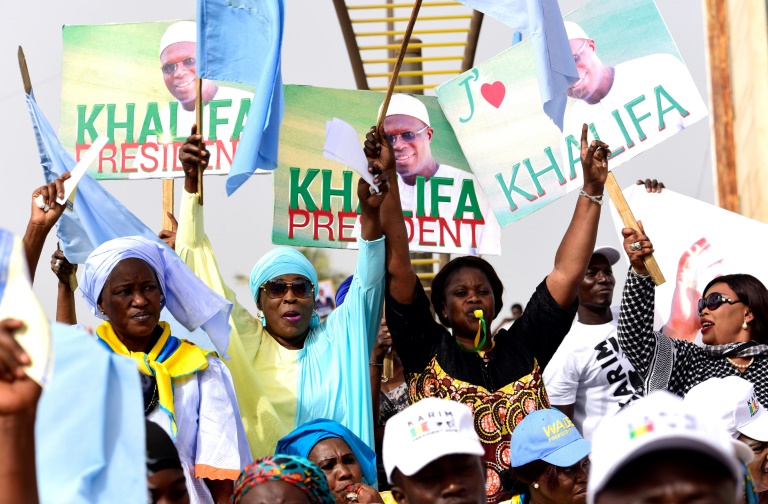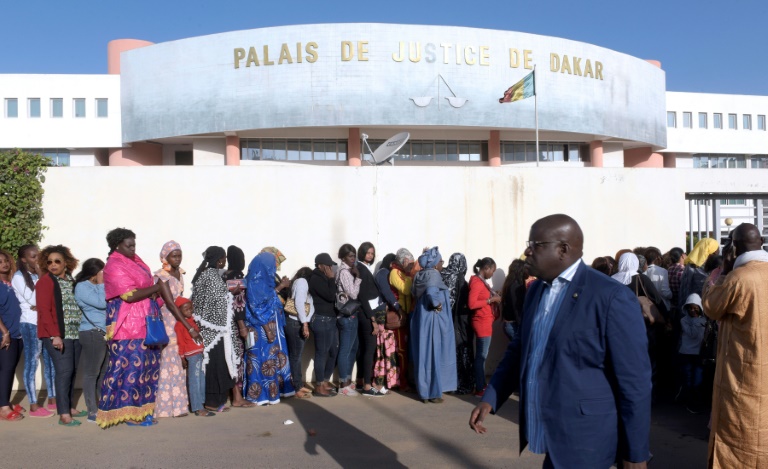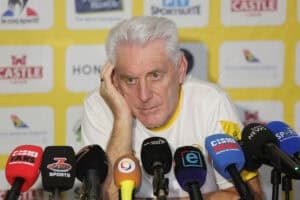A Senegalese court on Friday will deliver a verdict in a high-profile corruption trial that could make or break the presidential ambitions of the capital's popular mayor, Khalifa Sall.
After being held in pre-trial detention for nearly a year, Sall went before the court in January and February on charges of embezzling public funds.
Prosecutors are seeking a seven-year prison term for Sall and his financial director Mbaye Toure, and a fine worth nearly $10 million (more than eight million euros).
A conviction could have far-reaching political consequences in Senegal, a country praised for its stability and democracy.
It would bar Sall from standing in next year’s presidential election, derailing a growing challenge to incumbent Macky Sall, who shares the same name but is not a relation.

A conviction on Friday would bar Sall from standing in next year’s presidential election in which the incumbent Macky Sall (no relation) is favourite
The 62-year-old Dakar mayor and seven co-defendants are accused of misappropriating 1.83 billion CFA francs ($2.85 million, 2.7 million euros) of city funds between 2011 and 2015 — a charge which Sall denies and which supporters say is politically motivated.
They were also charged with fraud, criminal conspiracy and money laundering.
The court heard allegations of a system of fake receipts for rice and millet, the money from which Sall is accused of using for “political purposes”.
Sall said the trial was fuelled by his refusal to cut deals with the government and that the money was used for spending on sensitive issues such as security.
Often preferring a traditional boubou robe to suit and tie, he was upbeat during the case, smiling and greeting supporters who turned up for every hearing in their hundreds.
– ‘Right to run’ –
“Should I be robbed of my right to be a candidate because Macky Sall doesn’t want Khalifa Ababacar Sall to become his opponent in 2019?” the mayor asked combatively on the trial’s last day.
Sall began his political life at the age of 11, as a junior activist in the party of Senegal’s first president, the poet and cultural theorist Leopold Sedar Senghor.
He became the head of the Socialist youth wing and in 1983 first won a seat in parliament aged 27.

Supporters of Khalifa Sall turned up for every hearing in their hundreds
He went on to become deputy mayor of Dakar, and from 1993 to 2000 held various ministerial portfolios under then Socialist president Abdou Diouf.
He was first elected mayor in 2009, when to almost universal surprise he made a declaration of his personal assets — the first time this had happened in municipal history.
He was re-elected in 2014 and last July won a seat in the national assembly from prison. His parliamentary immunity was lifted to pave the way for the trial.
He and other dissidents of Senegal’s Socialist Party, a member of the presidential coalition, were kicked out of the party in December for “violence, indiscipline and political activities competing” with the leadership.
Sall, who is secretary general of the Association of Francophone Mayors, also enjoys support from his counterparts abroad.
His long pre-trial detention and allegations of political machinations behind his arrest have perturbed the diplomatic community in a nation with strong democratic institutions.






